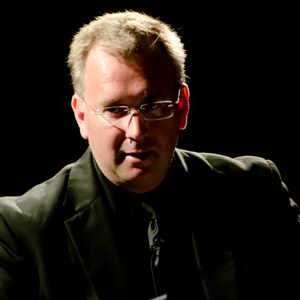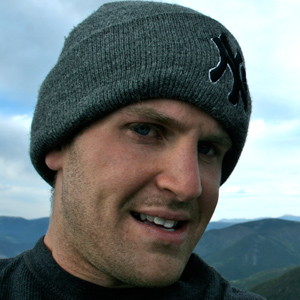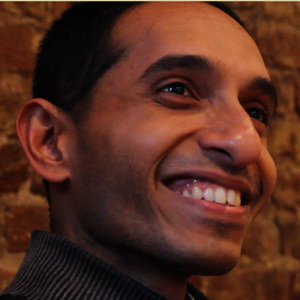Writing 150 Musical Compositions Before Turning 50: Stephen P. Brown’s Quest
This is a quest case study. (Read others or nominate yourself.)
Rejection didn’t dampen Stephen P. Brown’s inner fire. Instead, being turned down from achieving something he wanted flamed his desire to grow and change. Here’s his quest.
Introduce yourself.
As a conductor of orchestras, bands, choirs and musicals, it has been my privilege to see thousands of people laugh, cry and directly connect with live music, whatever language they speak. My life journey has taken me from a small village in the English countryside to the sunny shores of Florida via Europe, Africa, South America, and much of the USA and Canada.
Through all my travels I occasionally needed to compose music specifically for the ensembles I worked with, and I dabbled in some formal composition training here and there, but I never considered myself a ‘composer.’
In early 2011 one of my solo piano compositions was performed in New Jersey to the delight of a packed audience (despite a snowstorm that morning). Then in 2012, I wrote a piece called “Tapestry Tampa Bay” that reflected six aspects of Florida’s West Coast, including the Grouper fish and the Skyway Bridge.
I got inspired to embark on a project I called #PsalmQuest. The goal is to compose 150 new pieces of music by my 50th birthday – which is now less than 5 years away. Right now I am 25% of the way through.

What exactly inspired you to embark on this quest?
As has happened so many times in my life, rejection inspired a challenge.
I received an invitation to teach at a university, but during the formal application process it became apparent that my MA in Conducting from abroad would not be recognized in America as a credible qualification.
To satisfy the need for a recognized academic qualification, I gathered some of my compositions and submitted them for an American MA. My application was rejected.
I decided to prove to myself that I could compose good music.
Over many years I had occasionally wondered about composing music for all the psalms in the Bible. There are 150 of them, and my next big birthday was my 50th, in the year 2020. So there it was.
Also, I figured that writing 150 new pieces of music would certainly improve my skills, whether or not someone thought they were suitable for an MA.
Are there costs associated with your composing so much music?
Before I embarked on my quest, I set some parameters. I needed a project that could be undertaken with the resources I already possessed, and that would not require me to ask for funding. My bills are covered by a day job, but my quest could not drain any of those resources.
Technology today is both advanced and somewhat affordable, so I already owned a comprehensive music composition software (Sibelius) and a good computer—so I had everything I needed.

Do you want to sell your music?
The goal of my quest is not to have every piece performed, nor is it to sell the sheet music or record every piece and sell CDs. Such outcomes are bonuses—terrific, but not essential (and you can download the sheet music for each piece on my website).
That said, I do dream that the last #PsalmQuest composition, for full orchestra and choir, be performed on my 50th birthday in front of thousands of enthusiastic fans.
How have you dealt with a low point in your quest?
Creating a vision was not a problem for me. Bringing it to fruition proved difficult, though.
My day job took a lot of time – I was conducting multiple bands and a chorus – and I started falling behind schedule. I got worried, depressed, and unsure how I would achieve my goal. There was no one to blame but myself – there weren’t airline schedules to rely on, weather wasn’t a factor. This quest was entirely my own effort.
After seeking advice on the internet, I quietly changed my alarm clock to 5:30am. This hour was frankly unheard of for me, since my bedtime often was, and still is, 2 am. But it was necessary in order to get back on track.
So far, it’s worked. I am all caught up, and one of my goals in 2015 is to actually get ahead of schedule.
What has surprised you during #PsalmQuest?
That there are people who like my music! Some performers have shared my compositions with their audiences. World Premiere performances of #PsalmQuest pieces have taken place in Florida, New Jersey, Ohio, Kentucky, and the UK.
I have also been pleasantly surprised at how disciplined I can be following my schedule. Reporting my daily progress online has helped me clarify and share many lessons, approaches, and strategies that are as applicable to daily living as to writing a piece of music.
Perhaps the most surprising aspect of my quest so far has been a rekindling of my desire to perform on the piano. I moved from singing to piano as a child, but then went on to play clarinet and finally percussion as my main instrument into adulthood. Piano was a tool I used to teach and to accompany others, but not perform.

Now I am learning to play my own solo piano compositions whilst preparing for a local concert tour later this year, and recording a CD.
Have you had any support during your quest?
The list of supporters and champions for my quest is long. Robert McCormick, Head of Percussion at the University of South Florida, has been a huge supporter. He regularly shares his thoughts about my compositions and even commissioned one for percussion ensemble. Getting paid to write a #PsalmQuest composition was incredible.
Calvin Falwell from The College of New Jersey championed a piece for solo bass clarinet and strings, paid for in part by Diana Hessinger, a friend from high school.
Other supporters include the singers of the Sunfonia Chorale who performed several pieces last summer, as well as Chemena Geldimyradova who performed “Covered” for solo piano. Tony McClaren in West Virginia reached out to me and I ended up writing a concerto for trombone and wind sinfonia.And James Kerzman, a trumpeter in North Dakota, helped me prepare several compositions for brass instruments, as have James Stretton and Mark Harrison (both in the UK).
Not to mention people on social media, and my wife. It’s been tremendous.
Tell us about a memorable encounter fresh in your mind.
One of the most memorable experiences of #PsalmQuest was when Judy Kang came to town.
Judy is a world-renowned violinist supported by the Canadian Arts Council, but she was also the onstage violin soloist for Lady Gaga’s global Monster Ball tours. We spoke about her coming to the Tampa Bay area to perform her own music but I was delighted that when she was here, she played Bagatelle (#PsalmQuest 7) during one of her recitals.
Judy made the piece come alive and gave it an expressive quality I was not expecting. It was an honor to experience her performance firsthand and be able to relive it over and over again.
Do you have any advice for how to begin a creative quest?
Plan as much as you can in advance.
The more you have planned, the more you’ll be able to just get on with the work, and not worry about “what next?”
Schedule the order of tasks.
Giving each task a due date enabled me to give the project direction and accountability.
What’s next?
Finish the quest and hopefully tour with the pieces.
Follow Stephen P. Brown’s #PsalmQuest at his site, or via Twitter @Stephen_P_Brown.
###







